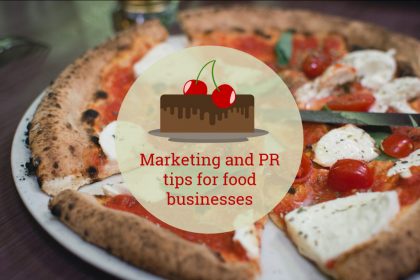When good PR turns bad – a lesson in being a case study
Is all publicity really good? Journalist and blogger Samantha Downes reveals the shocking fallout from sharing a personal experience in the press.
All publicity is good publicity, so they say. Or rather to quote Oscar Wilde, “there is no such thing as bad publicity”.
Well as a journalist I beg to disagree. It depends what you are selling and where you want your brand to go.
For the purposes of this article, and where my experience comes in, I’m referring to publicity which focuses on the individual. First person stuff.
It’s tempting to sell your story for business publicity
As someone trying to build a brand and without a huge marketing budget it’s tempting to want to sell your story and have your business mentioned as an aside.
First person pieces, where you are a case study or where you tell your story to a journalists can be a great way to get publicity for your company. I say can be…
Some of the UK’s best known brands are ones which have used the personality of their founder to gain a foothold in the public consciousness.
Virgin, Top Shop, EasyJet, LastMinute.com there are many more.. But it can go wrong, mainly because – then it becomes notoriety and not everyone wants that. Gerald Ratner anyone?
My own experience of using my own story to get work is a lesson in point.
I wrote a story that briefly mentioned my sex life
Three years ago, while freelancing, I decided that rather than write about finance all day it might be more lucrative to market myself as a talking head.
So I pitched a piece to an editor at one (if not the) main UK news website.
My piece seemed entertaining enough. Actually it was quite a fun piece to write. I sold it to the editor on the basis that my sex life improved when my husband became a stay at home dad while I went out to do internet-y type things for a financial news website launch.
When it was published I felt quite proud. The bottom line was I had managed to pitch and place a positive article about a woman managing a full-time career while her husband took on the role of stay at home dad.
The actual sex life bit accounted for one sentence in the story. I know how it works, after all my job involves telling other people how to write headlines.
So feeling positive I shared the link with my friends on Facebook.
I didn’t anticipate the negativity
Maybe because I was still breastfeeding and in a hormonal cocoon I didn’t really anticipate some of the negativity that was thrown at me; none it may I add to my face.
So there I was quite happy I had written something that had taken my the best part of an hour to write and got paid about £500 for it.
But I hadn’t bargained on a mother at my daughter’s school.
At the time my oldest daughter was in six going on seven and coming to the end of Year One. When I put the link up to the story on Facebook I noticed how this one mum in particular seemed to get particularly aggravated by it. She seemed to think was ‘having a go at mums who stayed at home’.
For some reason she found my piece offensive. What particularly got me was that she didn’t realise I (unlike her) didn’t have a choice. I had to go out and do a paid job.
The summer holidays passed and it just so happened that I was going away on a mum’s weekend away with this woman and few others.
I was unfriended by school mums
I didn’t really know them all so well, because my school runs consisted of trying to get my 18-month old to the childminder and then try and be at my computer to log on for a BBC World Service editing contract I was doing (that job saved my sanity after this whole sorry saga started my colleagues were amazing because this experience really upset me).
Anyway one evening just a few weeks before the planned weekend I turned on my phone to see this woman had sent a message about me to the rest of the group. Her message basically said in no uncertain terms that ‘anyone sharing a room with me – would have their relatives of their relatives wishing them dead’. Basically I was that awful. Can I repeat, I barely knew this woman…
I did end up going on this weekend. An experience I won’t repeat but one by one the other mums who were associated with this woman, unfriended me on Facebook.
I knew it was about the article, but I also knew that long-term professionally writing stuff like this wasn’t really my bag. But nor did it affect my brand.
The long term effects have stayed with me
But the long-term effects are still with me. Apparently two women (this mum told me) didn’t come on the weekend away because I was going on it. That was told to me on a Facebook messenger thread in front of the other women going on this weekend away.
Charming.
No one stuck up for me, and we are talking about a Christian school.
I still look around at the now year five mums and wonder which two it was. My really good friends who’ve known me 30-odd years, tell me it’s because I’m the kind of person other women (who are less sisterhood than I am) might envy and therefore project their feelings on to me.
That I guess is my lesson in using myself as a case study.
I’m not the first or the last hardened hack to fall foul of these keyboard warriors. Polly Vernon, a writer for Grazia magazine has found herself at the trolling coalface simply because she said feminists should be able to wear lipstick and sexy clothes.
My advice is, if you use yourself as a case study just make sure you know what you are letting yourself in for.
Samantha Downes is editor of What Investment and blogs as The Undomesticated Mum.
Photo by Chad Madden










